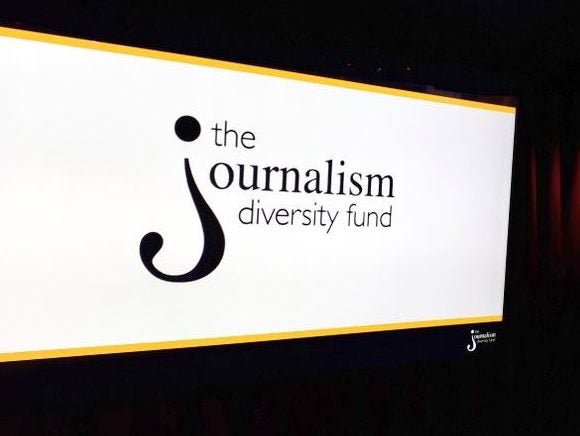
Digital news is more diverse than traditional print media, according to Bloomberg executive editor Jacqueline Simmons.
Simmons was speaking at an event celebrating the work of the NCTJ’s Journalism Diversity Fund held at Google’s London offices.
She said: “I think the picture for digital is very different from traditional media. I think you see more people of colour and women, for instance, than you do in traditional media.”
She said the barriers to young people from diverse backgrounds entering journalism included a lack of mentoring, role models and mobility.
“Young people need to know that they have a place in a company, they need to know that there’s mobility for them and that they aren’t overlooked,” she said.
“I think that when we don’t have role models at the top, when we don’t have people we can aspire to and there isn’t a place for us, we leave.”
Simmons was part of a panel discussing the process of attracting and retaining journalists from all walks of life.
Her fellow panelist, Trinity Mirror editorial trainer Suchandrika Chakrabarti, said Twitter had helped to open the “closed shop” of journalism “right up”.
“It’s an amazing way of getting to know who people are and their journalism. It helps you talk to people and people talk to you,” she said.
Elizabeth Pears, news editor at Buzzfeed, said the ability to instantly measure responses to online content created a space to take risks with more diverse content. She said: “You can experiment with digital and the numbers will tell you whether the audience liked it.”
She added: “We are living in quite interesting times and in order to make sense of it we need diversity in the newsroom. We need people who can be dissenting voices, who can challenge and ask questions and sometimes that can help you get a better story.”
The panel agreed that having a diverse newsroom helped give stories a more “authentic” voice, even if that was simply to provide a point of reference and knowledge for other journalists on the team when it comes to on particular issues.
On the issue of class prejudice, Simmons said: “It isn’t enough to do lip service anymore. I have seen people not really taken into account because they didn’t do this degree or go to that school.”
A second panel discussion on mental health and disabilities saw issues raised around access to journalism.
Jenni Regan, senior media advisor at mental health charity Mind, said: “Mental health is still very much a hidden disability in the workplace. Things are getting better, but when it comes to workplaces people do still hide their problems.”
Hannah Parkinson, a Guardian writer with bi-polar disorder, said: “If they don’t get support, people will leave.
“It’s about promoting them in the same way, giving them the same opportunities but in the long term being aware of their condition and supporting them.”
Picture: NCTJ
Email pged@pressgazette.co.uk to point out mistakes, provide story tips or send in a letter for publication on our "Letters Page" blog
